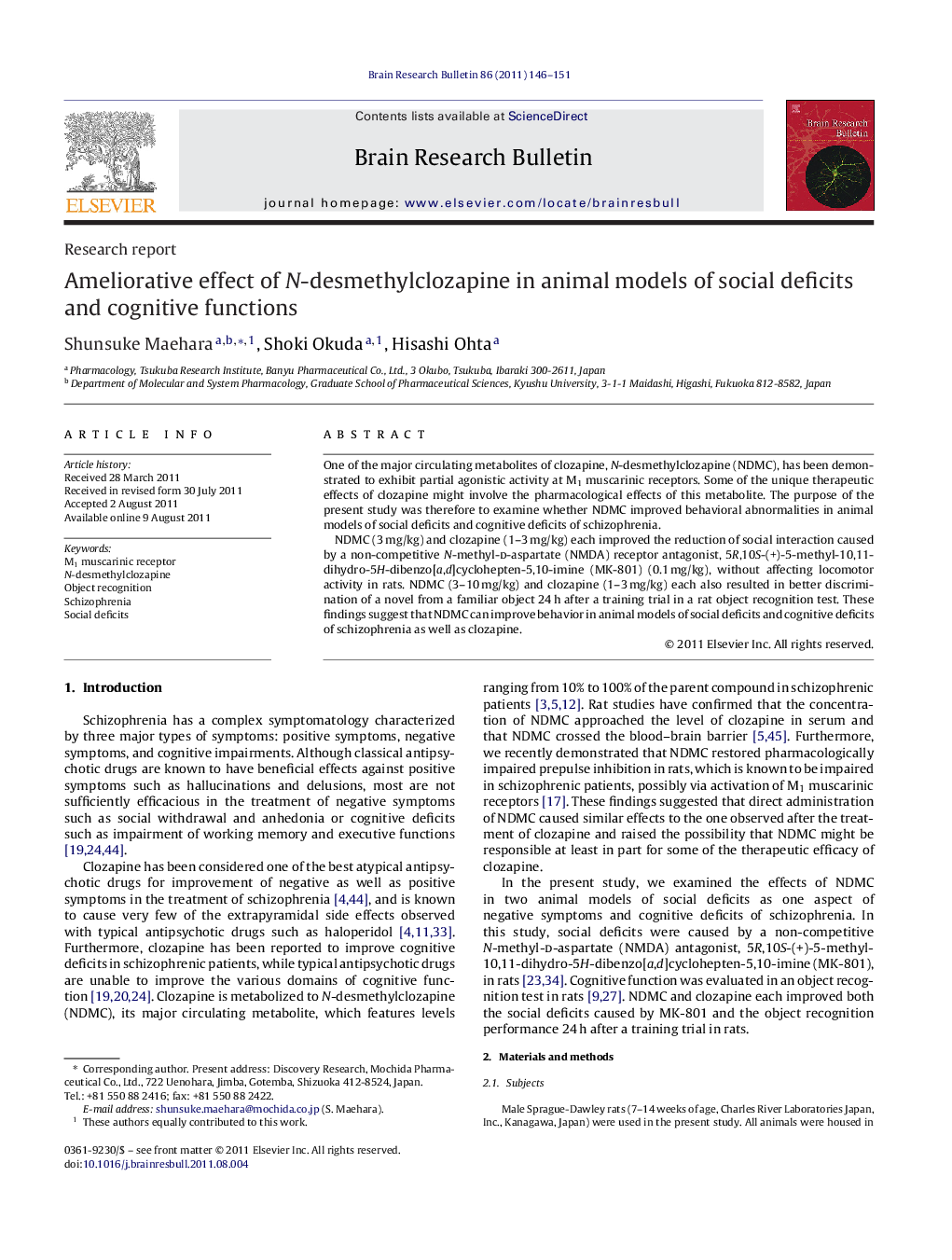| Article ID | Journal | Published Year | Pages | File Type |
|---|---|---|---|---|
| 6261964 | Brain Research Bulletin | 2011 | 6 Pages |
One of the major circulating metabolites of clozapine, N-desmethylclozapine (NDMC), has been demonstrated to exhibit partial agonistic activity at M1 muscarinic receptors. Some of the unique therapeutic effects of clozapine might involve the pharmacological effects of this metabolite. The purpose of the present study was therefore to examine whether NDMC improved behavioral abnormalities in animal models of social deficits and cognitive deficits of schizophrenia.NDMC (3Â mg/kg) and clozapine (1-3Â mg/kg) each improved the reduction of social interaction caused by a non-competitive N-methyl-d-aspartate (NMDA) receptor antagonist, 5R,10S-(+)-5-methyl-10,11-dihydro-5H-dibenzo[a,d]cyclohepten-5,10-imine (MK-801) (0.1Â mg/kg), without affecting locomotor activity in rats. NDMC (3-10Â mg/kg) and clozapine (1-3Â mg/kg) each also resulted in better discrimination of a novel from a familiar object 24Â h after a training trial in a rat object recognition test. These findings suggest that NDMC can improve behavior in animal models of social deficits and cognitive deficits of schizophrenia as well as clozapine.
⺠We examine a major metabolite of clozapine, N-desmethylclozapine (NDMC) in rats. ⺠NDMC improves social deficits caused by MK-801 and object recognition performance. ⺠These effects are similar to those of clozapine. ⺠NDMC itself may be useful for negative symptoms and cognitions.
